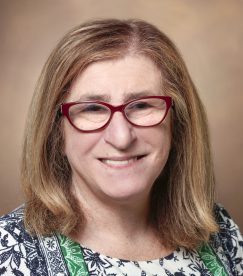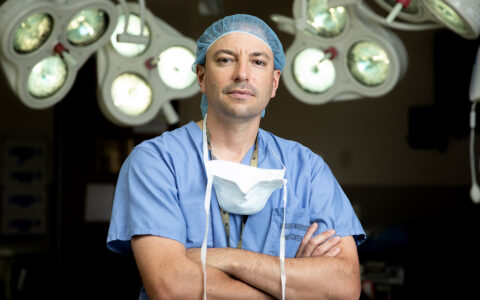U.S. death rates from cancer are higher in rural areas than urban areas, according to the U.S. Centers for Disease Control and Prevention. In response to this disparity, the National Cancer Institute (NCI) has invited researchers to design interventions to improve rural cancer care.
Debra Friedman, M.D., E. Bronson Ingram Chair of Pediatric Oncology and co-leader of the Cancer Health Outcomes and Control Research Program at Vanderbilt-Ingram Cancer Center (VICC), and Tuya Pal, M.D., Ingram Associate Professor of Medicine and associate director for Cancer Health Disparities at Vanderbilt, are leading an NCI-funded effort exploring telehealth-based interventions to support community-based oncologists and cancer patients. The program will be tested at seven rural hospitals in the Vanderbilt Health Affiliated Network.
The five-year initiative will give rural oncologists virtual access to the expertise of VICC’s molecular tumor board and follow-up with the center’s cancer subspecialists. In addition to supporting rural providers, the program will assess online education and cancer self-management training provided directly to patients.
“This is more than a telehealth program; this is really an intervention to try and improve cancer care in rural areas.”
“This is more than a telehealth program; this is really an intervention to try and improve cancer care in rural areas,” Friedman said.
Rural Cancer Care
Only seven percent of U.S. oncologists practice in rural areas, where approximately 14 to 19 percent of the U.S. population resides. Rural residents often have lower levels of education, employment, per capita income, and health insurance coverage than urban residents. Oncologists in rural areas are often tasked with treating all types of malignancies and “don’t have the luxury to specialize,” Friedman said.
At the institutional level, they may practice in less specialized centers with lower cancer volumes than urban centers, limiting therapeutic options. “We want the patient living in a rural area to have access to the same therapies as someone who is at Vanderbilt,” Friedman said. “This type of program is our responsibility because the issue affects a large number of patients in our catchment area.”
Profiling Tumors Through Telehealth
The telehealth initiative will focus on newly diagnosed or relapsed patients with breast, lung, colorectal, prostate, or cervical cancer, and their local oncologists.
Telehealth will allow participating rural oncologists to leverage VICC’s experience in precision medicine by consulting its molecular tumor board, led by co-investigator Ben Park, M.D., associate director for Precision Oncology and co-leader of the Breast Cancer Research Program at VICC, and including Christine Lovly, M.D., Kristen Ciombor, M.D., and Marta Crispens, M.D.
“So much of cancer therapy today is driven by the genomics of the tumor,” Friedman said. “But the rapid advances in precision cancer treatment present challenges for community oncologists.”
Many of these oncologists, she said, may not be experienced in interpreting genomic panels. “Even if they have access to genomic testing, when they get back the panels the reports are going to list all the mutations found in the tumors – including bystander mutations.” The result of wrongly interpreting a genomic panel may be “giving a patient a therapy with side effects and no hope of helping them.”
The primary endpoint of this research component will be adherence to treatment recommendations from the tumor board.
Engaging and Supporting Patients
The study will also evaluate support strategies for cancer self-management using online education. Patients will receive instruction in managing pain, nausea and fatigue during cancer treatment, maintaining nutrition during therapy, and communicating more effectively with physicians. They will be randomized to receive online educational materials (e.g. slideshows, videos, other materials) or an interactive, evidence-based self-management program led by a facilitator. Both modules will be accessible from any digital device.
“Our hope is that in addition to evaluating the clinical effectiveness of the program, by incorporating the patient component we will identify facilitators and barriers to future larger-scale dissemination and implementation,” Friedman said.





